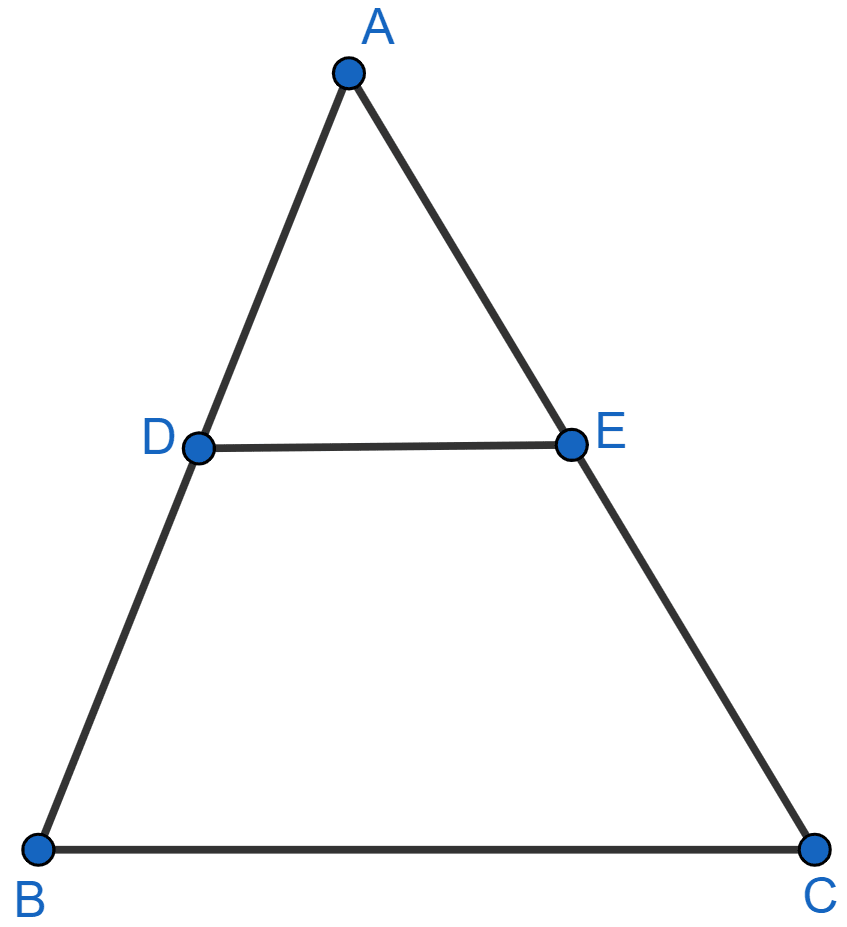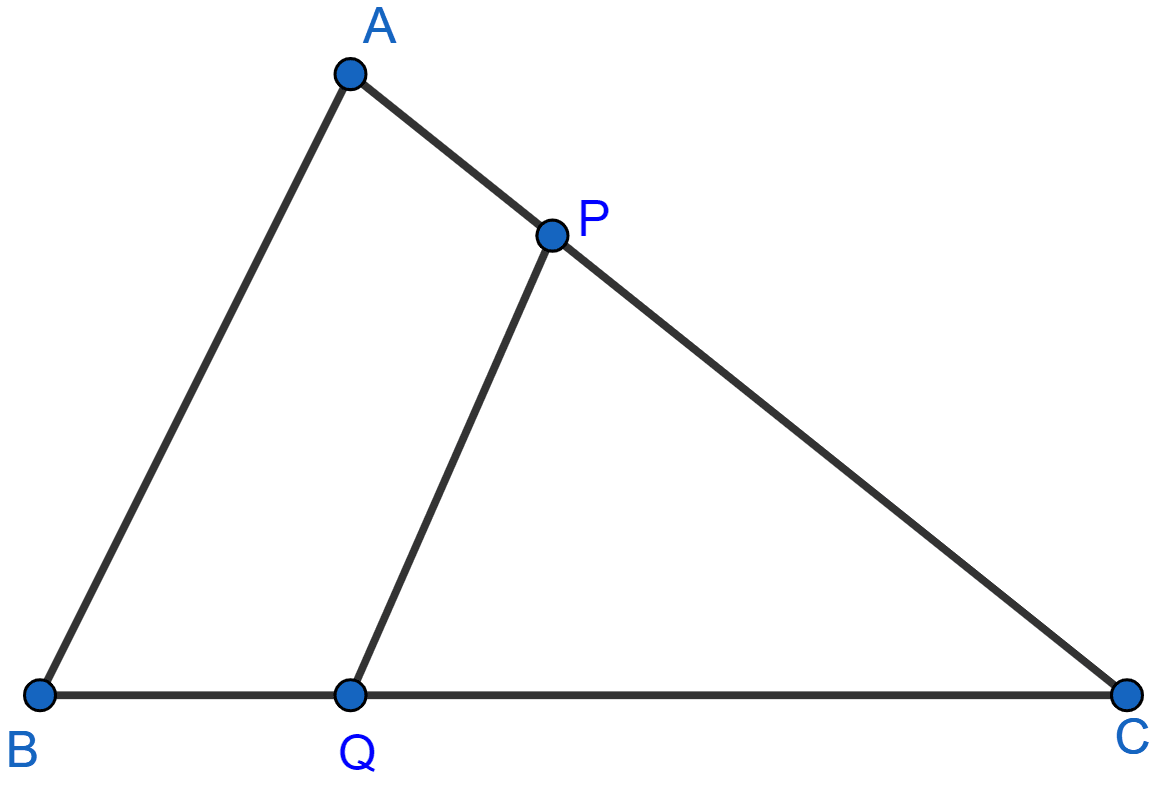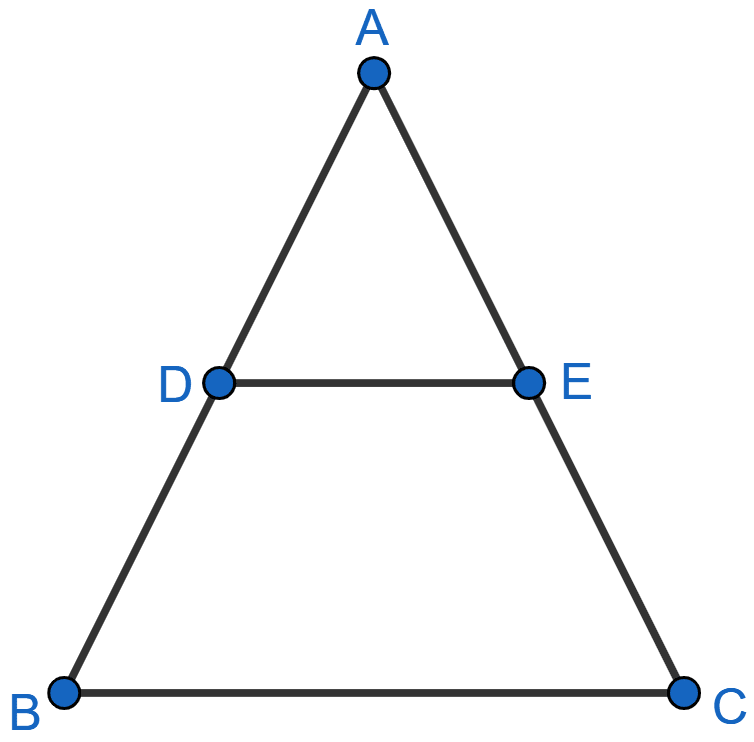Mathematics
In ΔABC, D and E are the points on sides AB and AC respectively.
Find whether DE || BC, if
(i) AB = 9 cm, AD = 4 cm, AE = 6 cm and EC = 7.5 cm.
(ii) AB = 6.3 cm, EC = 11.0 cm, AD = 0.8 cm and EA = 1.6 cm.
Similarity
8 Likes
Answer
(i) From figure,

BD = AB - AD = 9 - 4 = 5 cm
In ∆ADE and ∆ABC,
Hence, DE || BC by the converse of Basic proportionality theorem.
(ii) From figure,
BD = AB - AD = 6.3 - 0.8 = 5.5 cm
In ∆ADE and ∆ABC,
Hence, DE || BC by the converse of Basic proportionality theorem.
Answered By
5 Likes
Related Questions
In the given figure, PQ || AB; CQ = 4.8 cm, QB = 3.6 cm and AB = 6.3 cm. Find :
(i)
(ii) PQ
(iii) If AP = x, then the value of AC in terms of x.

A line PQ is drawn parallel to the side BC of ΔABC which cuts side AB at P and side AC at Q. If AB = 9.0 cm, CA = 6.0 cm and AQ = 4.2 cm, find the length of AP.
In the given figure, ΔABC ~ ΔADE. If AE : EC = 4 : 7 and DE = 6.6 cm, find BC. If 'x' be the length of the perpendicular from A to DE, find the length of perpendicular from A to BC in terms of 'x'.

A line segment DE is drawn parallel to base BC of ∆ABC which cuts AB at point D and AC at point E. If AB = 5BD and EC = 3.2 cm, find the length of AE.